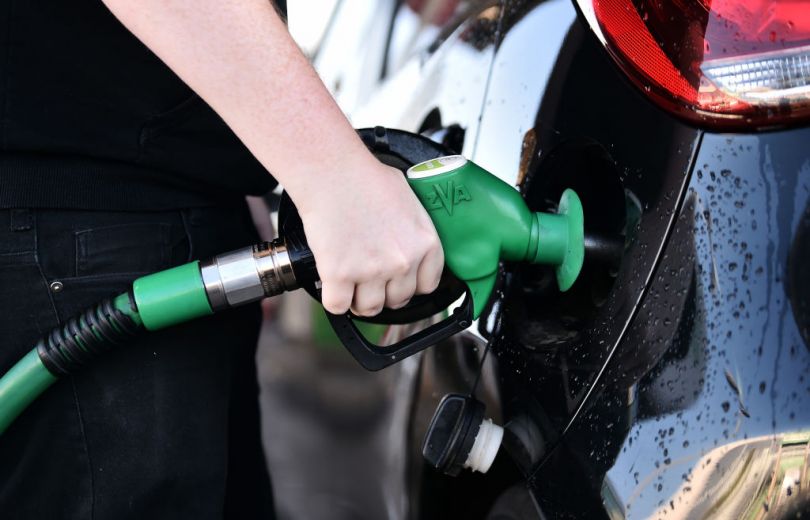Last week, Chancellor Rishi Sunak gave his Spring Statement to the House of Commons, where he raised the issue of rising fuel prices and announced that fuel duty will be cut by 5p to 52.95p per litre until March 2023.
Sunak stated: "I want to help people now. So I’m announcing three immediate measures. First, I’m going to help motorists. Today I can announce for only the second time in 20 years, fuel duty will be cut. Not by 1, not even by 2, but by 5 pence per litre. The biggest cut to all fuel duty rates – ever.
"And while some have called for the cut to last until August, I have decided it will be in place until March next year – a full 12 months. Together with the freeze, it’s a tax cut this year for hard-working families and businesses worth over £5 billion."
Although it may be the biggest fuel duty cut 'ever', it’s important to remember that tax revenue from fuel is still higher than it was a year ago – this is because the Government makes more in VAT when petrol and diesel prices are high. What’s more, the average price of a litre of petrol is more than 40p higher now than it was in last year’s Spring Statement, with diesel almost 50p higher. For the latest prices, check our RAC Fuel Watch.
What impact has the Spring Statement had on the cost of fuel?
Despite the Chancellor’s announcement, our data shows that savings made from cutting fuel duty have not been fully passed onto UK drivers.
While a lot can affect the price of fuel, a week after the Spring Statement, the average price of a litre of petrol at UK forecourts had dropped by only 3.5p per litre and 2.4p per litre for diesel. Drivers would have expected a 6p cut when taking into consideration the duty cut and VAT on top of this.
According to recent reports, large supermarkets and oil giants operating in the UK have passed on the cuts to customers, but smaller retailers or franchised stations are yet to make their move. This can be explained, in part, by retailers purchasing fuel less regularly and, even more importantly, by the fact duty is levied on the wholesale cost of fuel (what retailers pay for it), and not on the retail price (that drivers pay at the pumps). This means that higher wholesale costs can go some way towards cancelling out the fuel duty cut, meaning drivers don’t see much of a cost reduction at the pumps.
The rises in fuel prices over the last month have largely been driven by the ongoing war in Ukraine - which is pushing up the price of crude oil, though wholesale costs were already high even before the Russia-Ukraine war.
| Date | Average petrol price | Average diesel price |
|---|---|---|
| Wednesday 23/03/2022 (Spring Statement Day) | 167.01p | 179.9p |
| Tuesday 29/02/2022 | 163.52p | 177.47p |
| Reduction since Spring Statement | -3.49p | -2.43p |
RAC spokesperson Rod Dennis said: “Unfortunately, wholesale fuel prices were already rising before the Chancellor made his announcement on fuel duty last week. This meant retailers were buying fuel in at a higher cost than they were a week earlier, which meant drivers may not have immediately and fully benefitted from the duty cut. Wholesale prices are currently falling, but it’s likely to be next week before we see what impact this has at the pumps.
“Had the Chancellor instead cut VAT on motor fuel last week, drivers would have seen an immediate and guaranteed reduction in their fuel bill next time they visited a petrol station. As things stand, drivers remain entirely dependent on what is happening on the wholesale market and the extent to which retailers are able or willing to pass on savings they make.”
For more on petrol and diesel prices, check RAC Fuel Watch.
If you run out of fuel when out on the road, the RAC can help with its Breakdown Cover.
What will happen next? And how will the RAC help its members?
As reported earlier this month, a petition was launched to reduce fuel duty and help ease cost of living - and this week it reached the 100,000 mark - meaning that the topic could be debated in the House of Commons in the future.
The RAC’s head of roads policy, Nicholas Lyes will be standing up for RAC members when discussing the price of fuel with MPs who wish to take part in the parliamentary debate following the success of the petition. We also continue to work with officials in the Treasury and the Department for Business informing them of the latest pricing trends. RAC Drive will be keeping UK motorists up to date with any future developments. The RAC also produced advice to drivers on how to reduce fuel consumption when behind the wheel.

Breakdown cover from £5.29 a month for Standard cover*
• Cheaper than AA Price Promise or we’ll beat it by 20%^
• We get to most breakdowns in 60 mins or less
• Our patrols fix 4/5 breakdowns on the spot










